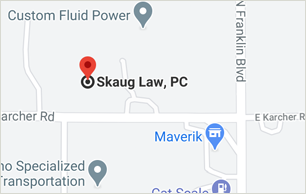Your Workers Comp Judge Decision
Last updated Thursday, September 19th, 2024

When awaiting a workers comp judge decision, understanding the process, timelines, and the ruling’s consequences on your claim becomes pivotal. This guide offers insights into how judges assess workers comp cases, what factors influence the duration before a decision is rendered, and how the ruling can affect your workers comp benefits. By the end of this article, expect to have a clearer picture of the decision-making process and the steps to take should you need to appeal.
Deciphering the Workers Comp Judge’s Ruling
A workers comp judge’s decision can feel like an enigma. The judge’s evaluation process and the timeframe for receiving the decision can be intricate, and the impact on your workers comp claim can be substantial. Deciphering this enigma is key to securing your rights and benefits as a workers comp judge navigates the complexities of the case.
The judge’s ruling is the culmination of the workers comp hearing process, which includes both parties submitting written closing arguments, the judge reviewing all the evidence and arguments, and then making a decision. This decision is issued in a written notice of decision, reflecting the findings and awards made by the judge, including workers comp benefits.
The judge meticulously reviews various factors during the evaluation process, focusing on the consistency of witness statements and expert opinions. The impact of the decision on your claim could significantly affect your life, as it determines the award of benefits and other crucial aspects of the case.
The Judge’s Evaluation Process

- Review and examine all exhibits and testimonies
- Ask questions to clarify any points
- Consider the credibility of witnesses
- Evaluate the strength of the evidence presented
Based on this thorough evaluation, the judge will then make a decision. It is important to note that the judge’s evaluation is an active pursuit of truth, and not a passive process.
Credibility is paramount in this process. Thus, judges scrutinize the consistency of the witness’s statements, the claimant’s ability to perform normal job duties, and any possible discrepancies in the statements. The judge also meticulously reviews all evidence and statements presented during the hearing to consider each party’s arguments. This thorough evaluation enables the judge to assess the merits of each side’s case and make a fair and informed decision.
Liability for emergency medical assistance by medically trained persons.
Have You Been Injured at Work?
Get Your Free Injury Case Review
Hire an experienced Idaho workers’ compensation lawyer that knows what needs to be done. The minute you sign with Skaug Law – we start working.
Timeframe for Receiving the Decision
The wait can be nerve-wracking, with a typical duration of 30 to 90 days to receive a workers comp judge’s decision after the hearing. The timeframe can be influenced by the judge’s workload and the strategies and tactics of the insurance company’s lawyer.
However, the process may be delayed due to factors such as:
- employer or insurer delays
- the need for further investigation
- existence of prior injury
- lack of witnesses
Despite these potential delays, understanding the timeline can help you manage your expectations and prepare effectively.
Impact of the Judge’s Decision on Your Workers Comp Claim
The ripple effects of a Workers’ Comp Judge’s ruling on your claim can be far-reaching. The decision, based on the presented evidence and the judge’s interpretation, can significantly affect the outcome of your claim. This impact extends beyond the confines of the courtroom, influencing your future employment opportunities and setting a precedent for future claims.
The financial consequences of the ruling may involve reimbursement of part of the salary, coverage of medical expenses, and compensation for lost wages. Moreover, a favorable judgment can enhance your access to medical care and reduce health-related expenses, impacting rehabilitation costs by influencing compensation for essential treatments and therapies.
The Role of Legal Representation in Influencing the Outcome
Choosing legal representation is not just an option but a strategic move that can potentially tip the scales in your favor. An experienced attorney can negotiate higher settlements, present your case effectively, and protect your rights, potentially leading to a more favorable outcome.
Your attorney’s responsibilities extend beyond mere representation. They accompany you throughout the process, articulating your position to the judge, and offering legal representation from filing claims to appealing denials. Their expertise equips them to prepare documentation and evidence meticulously, bolstering your case and expediting the claims process.
Key Attendees at a Workers Compensation Hearing
A workers comp hearing isn’t a solo performance. Key players, including the judge, the injured worker, and a representative from the insurance company, take center stage. Each participant plays a unique role, and understanding these roles can help you navigate the hearing with ease.
Your attorney, for instance, is responsible for:
- representing you
- advocating for your rights and interests
- assisting in filing your claim
- appealing the denial of a claim
- presenting your case to the workers’ compensation judge
Similarly, the insurance company’s lawyer presents their workers comp case to the hearing officer to establish your eligibility for workers’ compensation benefits. In such situations, it’s crucial to have a workers comp lawyer on your side, who is well-versed with the workings of the workers compensation board.
The judge evaluates the evidence, listens to testimonies, and renders a judgment based on the information presented, while a court reporter transcribes the questions and answers exchanged during the hearing.
Presenting Your Case: Evidence and Testimony

- Medical records
- Physician’s reports
- Unpaid medical bills
- Witness statements
- Work-related documents
- Financial records
The strength of your evidence can significantly influence the judge’s decision.
Testimony in a workers comp hearing, be it in-person or virtually, is an opportunity to voice your narrative in front of the judge. During testimony, you share your first-hand experience of the incident, the injury, and the aftermath, weaving a compelling narrative that corroborates your claim.
The Significance of Medical Evidence
Your workers comp claim, as one of the injured workers, strongly relies on medical evidence. Medical records, lab tests, expert opinions, witness testimony, and other forms of proof establish the connection between the injury or illness and your job. This evidence delineates your medical history, treatment received, and the extent of the injury, forming the basis for validating your condition and disability.
The involvement of medical experts is particularly crucial. As they provide detailed medical reports and act as witnesses, they support your claims and evaluate medical issues related to the case. This medical evidence significantly influences the resolution of your case, substantiating every necessary element to support your claim.
Strategies for Effective Testimony
While testifying may seem daunting, following a few key strategies can help you deliver compelling and effective testimony. Here are some strategies to keep in mind:
- Honesty is paramount in a workers comp hearing. It establishes your credibility and fairness in the case.
- Maintain conciseness during testimony. Offer clear and direct responses to questions.
- Maintain composure throughout the hearing.
- Create a lasting impression on the judge.
By following these strategies, you can present your case effectively and increase your chances of a favorable outcome.
Avoiding hearsay statements is another crucial strategy, given that hearsay is not considered reliable or admissible evidence. Moreover, focusing on the facts of your case during testimony enables you to present the essential evidence more effectively, substantiating every necessary element to support your claim.
Navigating the Appeal Process
The appeal process can seem like navigating through a maze of legal procedures and deadlines. However, it’s a crucial option to consider if you believe the judge’s decision contains errors or if new evidence has emerged. To initiate an appeal, you must file within a specific timeframe after the judge’s decision, typically ranging from 30 to 180 days, and the entire process generally takes between two to four months to complete.
Legal representation is crucial during the appeal process, as it ensures a just and precise presentation of the case’s facts and relevant law. Although new evidence typically is not taken into account during the appeal process, it can potentially prompt a re-evaluation of the claim if presented to the Office of Workers’ Compensation Programs (OWCP) along with a request for reconsideration.
Preparing for the Hearing: Steps to Take Beforehand
Being well-prepared fuels your confidence during the hearing. Gathering all pertinent evidence, including lost wages, medical records and bills, depositions from medical professionals, and employment records, is a crucial first step in preparing for your hearing.
Your attorney, an experienced workers comp lawyer, plays a significant role in this process, including:
- Gathering essential evidence such as medical treatment records, medical bills, and disability evaluations
- Working diligently to address all legal aspects of the case
- Preventing any allegations of workers’ comp fraud.
Being well-prepared, knowing the location of the hearing in advance, meeting with your attorney and witnesses at least thirty minutes before the scheduled time, and ensuring all necessary paperwork is gathered can help you present your case professionally.
Differences Between Workers Comp Hearings and Civil Trials
Despite apparent similarities, workers comp hearings and civil trials are fundamentally different. Here are some key differences:
- A workers’ compensation judge presides over workers’ comp hearings, while civil trials involve juries.
- Disputes in workers comp hearings are generally resolved through pre-hearing proceedings, while civil trials follow a more formal trial process.
- The outcome of workers comp hearings is determined by a Workers’ Compensation Judge, while civil trials are decided by a jury or judge.
Workers comp hearings are overseen by specific regulations and protocols established by the United States Department of Labor, Office of Administrative Law Judges. Decisions are made following a comprehensive review of the workers comp cases record. Understanding these differences can help you navigate your workers comp hearing with confidence and clarity.

